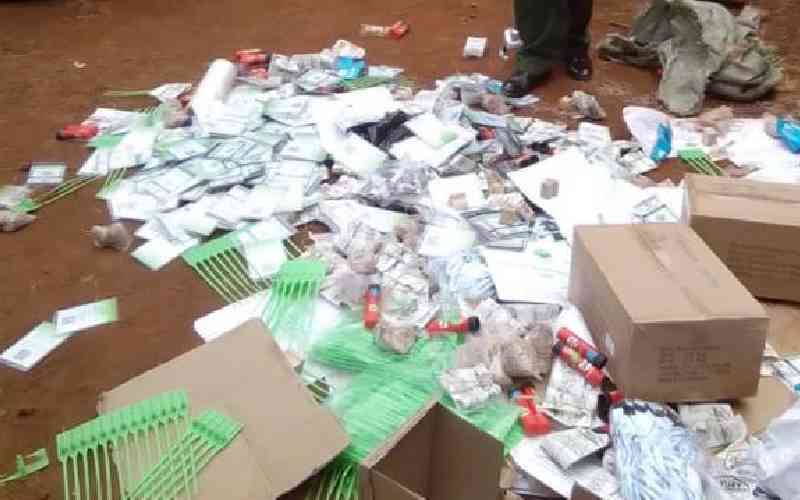×
The Standard e-Paper
Home To Bold Columnists

Individuals who committed various offences during this year's General Election risk jail terms and hefty fines if found guilty by the courts.
Already, the Director of Public Prosecutions Noordin Haji has fingered at least 100 suspects, who were identified by his team, which had been deployed to observe the elections, as part of a Memorandum of Agreement signed between his office and the Independent Electoral and Boundaries Commission.